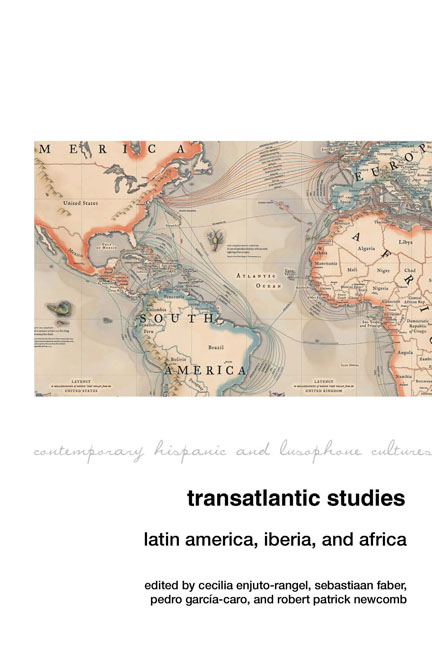Book contents
- Frontmatter
- Contents
- Introduction: Transatlantic Studies: Staking Out the Field
- Transatlantic Methodologies
- Transatlantic Linguistic Debates
- Transatlantic Displacement
- Transatlantic Memory
- Transatlantic Postcolonial Affinities
- Transatlantic Influence
- Epilogue: The Futureâif There Is OneâIs Transatlantic
- Index
15 - Triangulating the Atlantic: Blanco White, Arriaza, and the London Debate over “Spain”
- Frontmatter
- Contents
- Introduction: Transatlantic Studies: Staking Out the Field
- Transatlantic Methodologies
- Transatlantic Linguistic Debates
- Transatlantic Displacement
- Transatlantic Memory
- Transatlantic Postcolonial Affinities
- Transatlantic Influence
- Epilogue: The Futureâif There Is OneâIs Transatlantic
- Index
Summary
In the late summer and early fall of 2017, as this volume was undergoing its final revisions, the Spanish state experienced yet another crisis of legitimacy. As before, the central issue was the state's historical inability to articulate a truly plurinational political agreement. The challenges posed by the Catalan Generalitat and an unqualified majority in the Parlament, in particular their vow to hold a binding referendum on independence on October 1, were met by the passive-aggressive repressive measures of a right-wing government and its appointed Constitutional Court committed to the most regressive centralist interpretations of the 1978 Constitution. While that text had acknowledged the existence within a single nation-state called Spain of different “nationalities” (Art. 2), the pact forged after Franco's death, resulting in a decentralizing quasi-federalist system of autonomous communities, appeared to have collapsed 40 years later. An impossible debate returned with untouched dialectical dimensions: should Spain be a single nation and a unified centralized state, or could several national experiences and languages coexist in a federal arrangement? This two-century-old debate—which involves state legitimacies, competing historiographies, and civil rights—has proven impossible to resolve, as mutually exclusive positions have regularly prevailed.
In this essay, I look at one of the earliest articulations of the debate over Spain's identity and makeup at a time in which it still had a transatlantic dimension, during the first collapse of the Spanish empire (1808–25), to demonstrate the colonial, intercontinental origins of the debate about the definition of Spanishness. The context is well known, though it merits a brief summary. In all the major capitals across the Spanish Americas, printing presses actively denounced Napoleon's actions throughout the late spring and summer of 1808—his deployment of a large army across the Iberian Peninsula, imprisonment of the Spanish royal family, installment of Joseph I as king of “Spain and the Indies,” abuses against civil society—as acts of tyranny and an unquestionable usurpation of national sovereignty, in an effort to encourage popular resistance modeled after the Madrid revolt of May 2 of that year. These reports were often accompanied by calls for transatlantic solidarity, in part directed toward forestalling the conceivable expansion of Napoleonic France across the ocean.
- Type
- Chapter
- Information
- Transatlantic StudiesLatin America, Iberia, and Africa, pp. 178 - 190Publisher: Liverpool University PressPrint publication year: 2019

